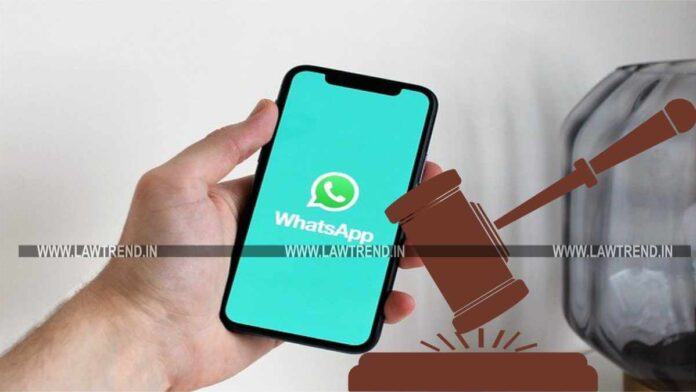The Supreme Court on Tuesday said it will examine whether it should consider now the plea challenging WhatsApp’s policy to share users’ data with parent company Facebook and others or it will be a mere “academic” exercise, after the Centre submitted that it was going to bring a data protection bill in the Budeget Session.
A five-judge Constitution bench headed by Justice K M Joseph was informed by Solicitor General Tushar Mehta that a data protection bill is likely to be introduced in the second half of the ongoing parliament session.
The top court observed that there was no harm in waiting for the Bill to be tabled and “heavens are not going to fall in the meanwhile”.
The matter will be taken up for hearing on Wednesday.
“The declaration which you might persuade us to grant, if that is going to be a subject matter of the legislation. But what we are trying to suggest if a legislative framework if it is available and if the government is contemplating, should we do this exercise now.
“Will it not be a mere academic exercise,” the bench also comprising justices Ajay Rastogi, Aniruddha Bose, Hrishikesh Roy, and C T Ravikumar said.
At the outset, Mehta told the bench that a data protection bill will be introduced, subject to administrative approvals, in the second half of the parliament session.
He said the whole exercise of hearing the issue might be an academic exercise in absence of a statutory framework.
Senior advocate Kapil Sibal, representing WhatsApp, suggested that the top court should wait for the bill to be tabled.
Senior advocate Shyam Divan, appearing for the petitioners, submitted that the introduction of a Bill itself should not defer the taking up of this case.
Divan said the prayer he was seeking is that personal data cannot be shared with the Facebook group of companies.
“We seek a declaration to that effect. We want an opt-out option and there should be a meaningful option. That option is not available to Indian users. There is a public interest element to this,” he said.
The apex court was hearing the plea filed by two students — Karmanya Singh Sareen and Shreya Sethi — challenging the contract entered into between the two companies to provide access to calls, photographs, texts, videos and documents shared by users is a violation of their privacy and free speech.




